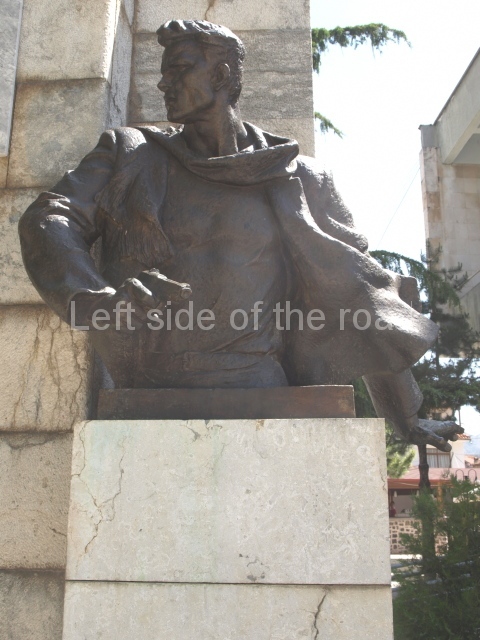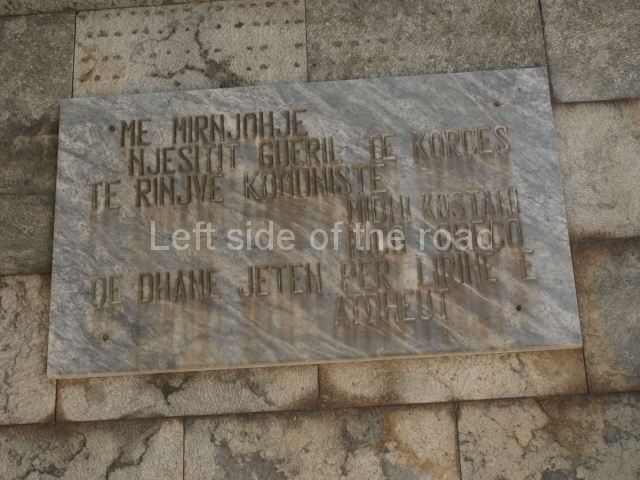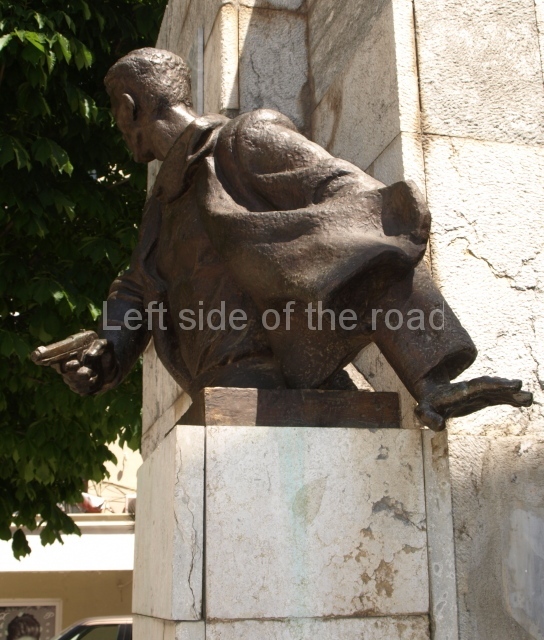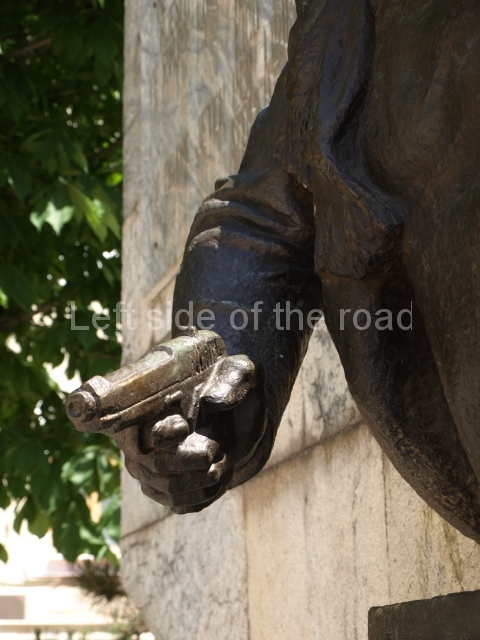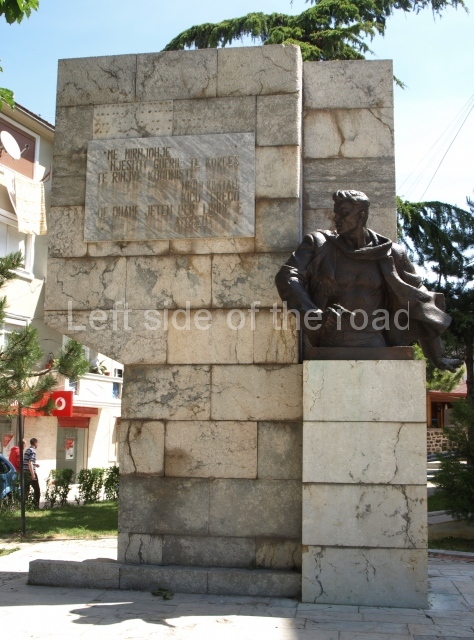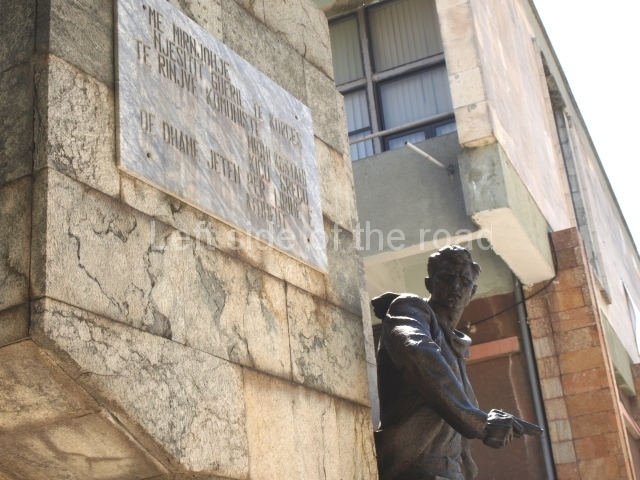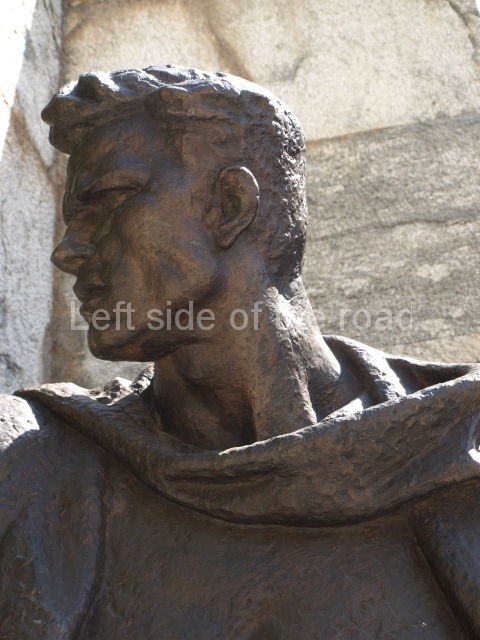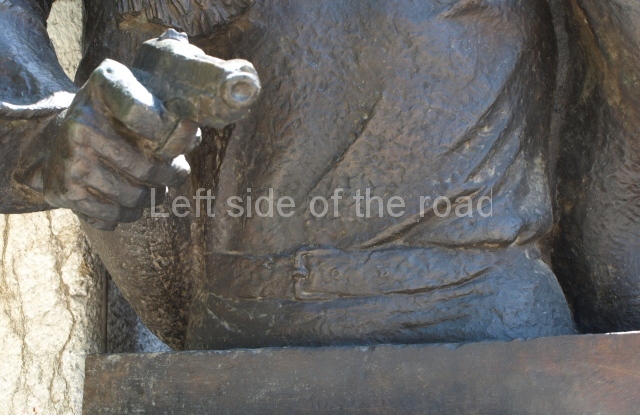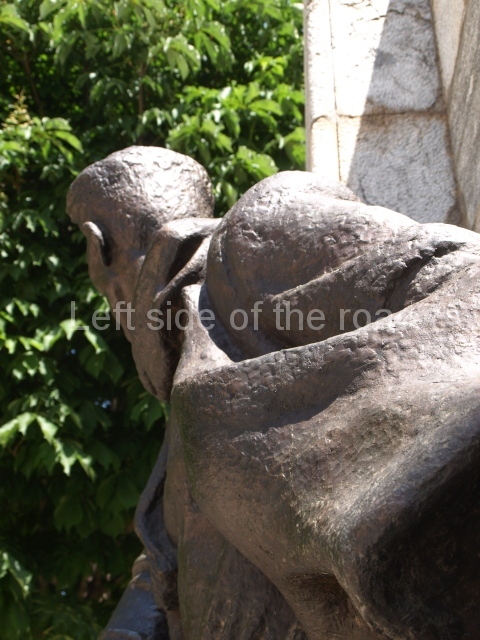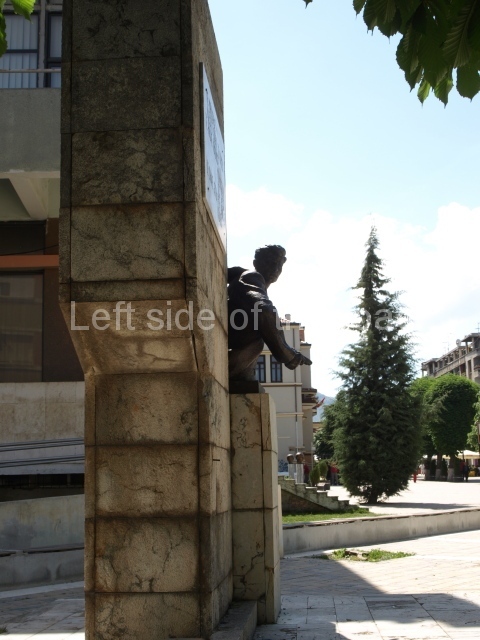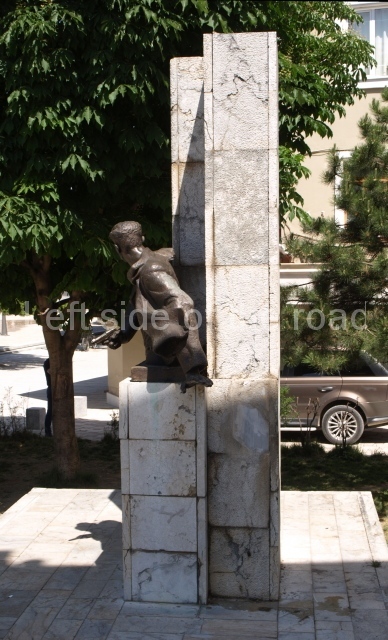Ukraine – what you’re not told
We 66 British academics and Israeli citizens reject the government’s imposition of the IHRA
The flawed definition threatens not only the fight against antisemitism, but Palestinian self-determination, academic freedom and our right to criticise the Israeli government.
Introduction
The open letter presented below was first published at the beginning of February 2021. The version here was published on the the Vashti Media website on 4th February 2021. It is reproduced here exactly as it was there.
We, British academics and Israeli citizens, strongly oppose the government’s imposition of the International Holocaust Remembrance Alliance (IHRA) Working Definition of Antisemitism on universities in England, and call on all academic senates to reject it.
We represent a diverse cross-disciplinary, cross-ethnic, and cross-generational group. We all share an extended history of struggles against racism. Accordingly, we have been critical of Israel’s prolonged policies of occupation, dispossession, segregation, and discrimination directed at the Palestinian population. Our perspective is deeply informed by the multiple genocides of modern times, in particular the Holocaust, in which many of us lost family members. The lesson we are determined to draw from history is of a committed struggle against all forms of racism.
It is precisely because of these personal, scholarly and political perspectives that we are perturbed by the letter sent to our vice-chancellors by Gavin Williamson, secretary of state for education, on 9 October 2020. Explicitly threatening to withhold funds, the letter pressures universities to adopt the controversial IHRA definition. Fighting antisemitism in all its forms is an absolute must. Yet the IHRA document is inherently flawed, and in ways that undermine this fight. In addition, it threatens free speech and academic freedom and constitutes an attack on both the Palestinian right to self-determination, and the struggle to democratise Israel.
The IHRA has been criticised on numerous occasions. Here, we touch on some of its aspects that are particularly distressing in the context of higher education. The document is in two parts. The first, quoted in Williamson’s letter, is a definition of antisemitism:
Antisemitism is a certain perception of Jews, which may be expressed as hatred toward Jews. Rhetorical and physical manifestations of antisemitism are directed toward Jewish or non-Jewish individuals and/or their property, toward Jewish community institutions and religious facilities.
This formulation is both vague in language and lacking in content, to the point of being unusable. On the one hand, it relies on unclear terms such as “certain perception” and “may be expressed as hatred”. On the other hand, it fails to mention key issues such as “prejudice” or “discrimination”. Crucially, this “definition” is considerably weaker and less effective than antiracist regulations and laws already in force, or in development, in the university sector.
Moreover, the government’s pressure on higher education institutions to adopt a definition for only one sort of racism singles out people of Jewish descent as deserving greater protection than others who regularly endure nowadays equal or more grievous manifestations of racism and discrimination.
The second part of the IHRA presents what it describes as eleven examples of contemporary antisemitism, seven of which refer to the state of Israel. Some of these mischaracterise antisemitism. They likewise have a chilling effect on university staff and students legitimately wishing to criticise Israel’s oppression of Palestinians or to study the Israeli-Palestinian conflict. Finally, they interfere with our right as Israeli citizens to participate freely in the Israeli political process.
To illustrate, one example of antisemitism is “[to claim] that the existence of a State of Israel is a racist endeavour”. Another antisemitic act, according to the document, is “requiring of [Israel] … a behaviour not expected or demanded of any other democratic nation”. Surely it should be legitimate, not least in a university setting, to debate whether Israel, as a self-proclaimed Jewish state, is “a racist endeavour”, or a “democratic nation”?
Currently, the population under Israel’s control comprises 14 million people. Nearly 5 million of those lack basic rights. Of the remaining 9 million, 21% (around 1.8 million) have been systematically discriminated against since the state’s establishment.
This discrimination manifests itself in dozens of laws and policies concerning property rights, education, and access to land and resources. All 6.8 million people thus prevented from full democratic participation are non-Jews. Emblematic of this discrimination is the Law of Return, which entitles all Jews – and only Jews – living anywhere in the world to migrate to Israel and acquire Israeli citizenship, a right extendable to descendants and spouses. At the same time, millions of Palestinians and their descendants, who have been displaced or exiled, are denied the right to return to their homeland.
Such discriminatory legislation and state practices in other contemporary or historical political systems – ranging from China to the USA or Australia – are legitimately and regularly scrutinised by scholars and the general public. They are variously criticised as forms of institutional racism, and compared to certain fascist regimes, including that of pre-1939 Germany; historical analogies are a standard tool in academic research. However, according to the education secretary, only those concerning the State of Israel are now forbidden to scholars and students in England. No state should be shielded from such legitimate scholarly discussion.
Furthermore, while the IHRA document considers any “comparisons of contemporary Israeli policy to that of the Nazis” a form of antisemitism, many in the Israeli political centre and left have often drawn such comparisons. One recent example is a statement [link broken in the original] by Yair Golan, member of Knesset and former deputy chief of the general staff of the Israeli military, in 2016. Another is the comparison between Israel and “Nazism in its early stages” made in 2018 by the Israel Prize laureate Professor Zeev Sternhell, a renowned Israeli historian and political scientist who was, until his recent death, a world-leading theorist of fascism. Such comparisons are also made regularly by the editorials of the leading Israeli newspaper, Haaretz.
The use of such analogies is hardly new. In late 1948, a prominent group of Jewish intellectuals and Rabbis, including Albert Einstein and Hannah Arendt, published a long analysis in the New York Times accusing Menachem Begin, Israel’s future prime minister, of leading ”a political party closely akin in its organization, methods, political philosophy and social appeal to the Nazi and Fascist parties.”
With its eleven “illustrative examples”, the IHRA definition has already been used to repress freedom of speech and academic freedom (see here, here and here). Alarmingly, it has served to frame the struggle against Israel’s occupation and dispossession as antisemitic. As recently stated in a letter to the Guardian by 122 Palestinian and Arab intellectuals:
We believe that no right to self-determination should include the right to uproot another people and prevent them from returning to their land, or any other means of securing a demographic majority within the state. The demand by Palestinians for their right of return to the land from which they themselves, their parents and their grandparents were expelled cannot be construed as antisemitic… It is a right recognized by international law as represented in UN general assembly resolution 194 of 1948… To level a charge of antisemitism against anyone who regards the existing state of Israel as racist, notwithstanding the actual institutional and constitutional discrimination upon which it is based, amounts to granting Israel absolute impunity.
In her recent letter endorsing the imposition of the IHRA on universities in England, Kate Green, MP and shadow secretary of state for education, states that “[w]e can only [fight antisemitism] by listening to and engaging with the Jewish community.” However, as Israeli citizens settled in the UK, many of us of Jewish descent, and alongside many in the UK’s Jewish community, we demand that our voice, too, be heard: the IHRA document is a step in the wrong direction. It singles out the persecution of Jews; it inhibits free speech and academic freedom; it deprives Palestinians of a legitimate voice within the UK public space; and, finally, it inhibits us, as Israeli nationals, from exercising our democratic right to challenge our government.
For these and other reasons, even the lead drafter of the IHRA, Kenneth Stern, has publicly warned:
Right-wing Jewish groups took the “working definition”, which had some examples about Israel …, and decided to weaponize it. … [This document] was never intended to be a campus hate speech code … but [at the hands of the Right it has been used as] an attack on academic freedom and free speech, and will harm not only pro-Palestinian advocates, but also Jewish students and faculty, and the academy itself. … I’m a Zionist. But on … campus, where the purpose is to explore ideas, anti-Zionists have a right to free expression. … Further, there’s a debate inside the Jewish community whether being Jewish requires one to be a Zionist. I don’t know if this question can be resolved, but it should frighten all Jews that the government is essentially defining the answer for us.
These concerns are shared by many others, including hundreds of UK students, scholars of antisemitism and racism, and numerous Palestinian, Jewish and social justice groups and campaigners in the UK and around the world, such as the Institute of Race Relations, Liberty, former Court of Appeal judge Sir Stephen Sedley and Rabbi Laura Janner-Klausner.
UK universities must remain firm in their commitment to academic freedom and freedom of speech, and to the fight against all forms of racism, including antisemitism. The flawed IHRA definition does a disservice to both of these goals. We therefore call on academic senates in England to reject the governmental decree to adopt it or, where adopted already, to revoke it.
Signed,
Professor Hagit Borer FBA, Queen Mary University of London
Dr Moshe Behar, University of Manchester
Dr Yonatan Shemmer, University of Sheffield
Dr Hedi Viterbo, Queen Mary University of London
Dr Yael Friedman, University of Portsmouth
Dr Ophira Gamliel, University of Glasgow
Dr Moriel Ram, Newcastle University
Professor Neve Gordon, Queen Mary University of London
Professor Emeritus Moshé Machover, King’s College London
Dr Catherine Rottenberg, University of Nottingham
PhD Candidate Daphna Baram, Lancaster University
Dr Yuval Evri, King’s College London
Dr Yohai Hakak, Brunel University London
Dr Judit Druks, University College London
PhD Candidate Edith Pick, Queen Mary University of London
Professor Emeritus Avi Shlaim FBA, Oxford University
Dr Merav Amir, Queen’s University Belfast
Dr Hagar Kotef, SOAS, University of London
Professor Emerita, Nira Yuval-Davis, University of East London, recipient of the 2018 International Sociological Association Distinguished Award for Excellence in Research and Practice
Dr Assaf Givati, King’s College London
Professor Yossef Rapoport, Queen Mary University of London
Professor Haim Yacobi, University College London
Professor Gilat Levy, London School of Economics
Dr Noam Leshem, Durham University
Dr Chana Morgenstern, University of Cambridge
Professor Amir Paz-Fuchs, University of Sussex
PhD Candidate Maayan Niezna, University of Kent
Professor Emeritus, Ephraim Nimni, Queen’s University Belfast
Dr Eytan Zweig, University of York
Dr Anat Pick, Queen Mary, University of London
Professor Joseph Raz FBA, KCL, winner of the 2018 Tang Prize for the Rule of Law
Dr Itamar Kastner, University of Edinburgh
Professor Dori Kimel, University of Oxford
Professor Eyal Weizman MBE FBA, Goldsmiths, University of London
Dr Daniel Mann, King’s College London
Dr Shaul Bar-Haim, University of Essex
Dr Idit Nathan, University of the Arts London
Dr Ariel Caine, Goldsmiths University of London
Professor Ilan Pappé, University of Exeter
Professor Oreet Ashery, University of Oxford, recipient of a 2020 Turner Bursary
Dr Jon Simons, Retired
Dr Noam Maggor, Queen Mary University of London
Dr Pil Kollectiv, University of Reading, Fellow of the HEA
Dr Galia Kollectiv, University of Reading, Fellow of the HEA
Dr Maayan Geva, University of Roehampton
Dr Adi Kuntsman, Manchester Metropolitan University
Dr Shaul Mitelpunkt, University of York
Dr Daniel Rubinstein, Central Saint Martins, University of the Arts, London
Dr Tamar Keren-Portnoy, University of York
Dr Yael Padan, University College London
Dr Roman Vater, University of Cambridge
Dr Shai Kassirer, University Of Brighton
PhD Candidate Shira Wachsmann, Royal College of Art
Professor Oren Yiftachel, University College London
Professor Erez Levon, Queen Mary University of London
Professor Amos Paran, University College London
Dr Raz Weiner, Queen Mary University of London
Dr Deborah Talmi, University of Cambridge
Dr Emerita Susie Malka Kaneti Barry, Brunel University
PhD Candidate Ronit Matar, University of Essex
PhD Candidate Michal Rotem, Queen Mary University of London
Dr Mollie Gerver, University of Essex
Professor Haim Bresheeth-Zabner, SOAS
PhD candidate Lior Suchoy, Imperial College London
Dr Michal Sapir, Independent
Dr Uri Davis, University of Exeter & Al-Quds University




